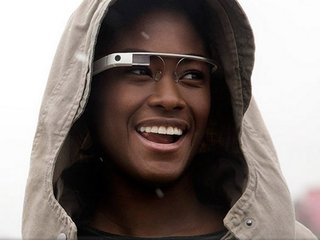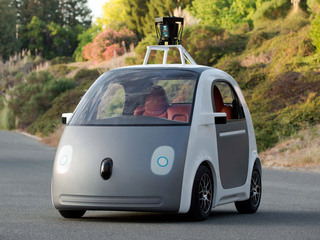New disease models unlocking secrets to neurological research
Advances in technology, like in vitro and microfluidics, have helped advance research
Read more...
As the self-driving, or driverless, car comes ever closer to being a reality, the industry, and the companies that will be making them, have begun to address some of the issues that will inevitably come up by having a car without a person making decisions.
As someone who walks a lot, I can tell you that it is extremely important to make eye contact with the driver of a car, to make sure they know you're there and that they won't run you over. Hopefully, anyway. (There are an alarming number of people who will see you and still decide it's a good idea to speed toward you, even if you're in a parking lot.)
So what do you do when the car coming toward you doesn't have eyes, and can't tell you what it wants to do? Google thinks it has the solution.
The company received a patent last week for how self-driving cars will be able to communicate with pedestrians, basically using censors to figure out what to do, then using signaling devices to declare its intentions.
"Aspects of the disclosure relate generally to notifying a pedestrian of the intent of a self-driving vehicle. For example, the vehicle may include sensors which detect an object such as a pedestrian attempting or about to cross the roadway in front of the vehicle. The vehicle’s computer may then determine the correct way to respond to the pedestrian," it says in the patent.
"For example, the computer may determine that the vehicle should stop or slow down, yield, or stop if it is safe to do so. The vehicle may then provide a notification to the pedestrian of what the vehicle is going to or is currently doing. For example, the vehicle may include a physical signaling device, an electronic sign or lights, a speaker for providing audible notifications, etc."
Here are some examples of what that may look like:


It is likely that the cars would have both audible and visual cues, since pedestrians could be either blind or deaf, so one would not suffice.
How these cars will deal with pedestrians, and vice versa, is just one of the multitude of issues that self-driving car manufacturers have to deal with.
There is also the issue of liability, and who is responsible for any accidents that may occur. Last month Volvo took the lead on that one, saying that the company "will accept full liability whenever one if its cars is in autonomous mode." Håkan Samuelsson, president and chief executive of Volvo Cars, also urged the United States to establish federal guidelines for the technology, rather than doing it on a state by state basis.
Like it or not, the self-driving car is coming, and very soon if people like Elon Musk and Sam Altman are to be believed. People have been ready for them for years now. This is happening. The only question is who will get there first.
The race seems to be between Google and Apple, with Uber also throwing its hat into the ring pretty late in the game.
Google has been at the forefront of the self driving car moment for years. It began testing them in 2011 in Nevada and the cars are already legal in various states. The company is well on its way toward commercialization. The vision proposed would be of self-driving cars roaming our city streets as Yellow cars are. You wouldn't even need to book them in advance, as a hand gesture would suffice.
In September, Google hired TrueCar president John Krafcik as CEO of its self-driving car project, as part of the company's restructuring as Alphabet. It also began testing the cars in Austin.
Uber, which announced earlier this year that it is working on its own self-driving vehicles at the Advanced Technologies Center located Pittsburgh, Pa, near the Carnegie Mellon University (CMU) campus. The facility is the offspring of a strategic partnership between Uber and CMU.
It is Apple, though, that might get there first. The company recently stated that it planned to have its first car done by 2019. Though it would not be a driverless car, it would obviously be a big step toward bringing such a vehicle onto the road.
There are serious questions to be asked before we fully embrace this technology, though, and its good to see that companies are thinking ahead for solutions to those issues.
This patent was first noticed by The Verge.
(Image source: michiganautolaw.com)
Advances in technology, like in vitro and microfluidics, have helped advance research
Read more...Robots are taking over the heavy lifting work inside warehouses
Read more...The company also expanded access to 12 different provider types for male fertility care
Read more...


